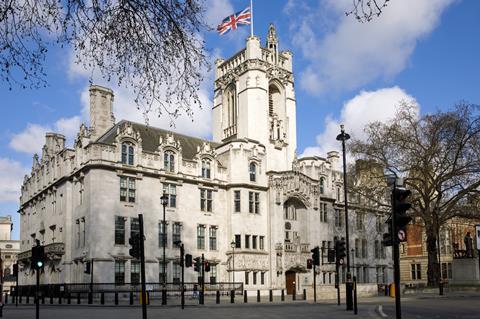The Solicitors Regulation Authority has stepped into a Supreme Court case to ask judges not to remove its costs protection when bringing prosecutions.
The solicitors regulator was an intervener in this week’s hearing for Competition and Markets Authority v Flynn Pharma Ltd & Anor, which considers what costs to award following an appeal before the Competition Appeal Tribunal.
Flynn Pharma claimed its costs on the basis that it substantially won its appeals. The case has moved to the Supreme Court for judges to decide whether there should be a costs order made against a regulator where it has been unsuccessful.
The outcome will have significant implications for the SRA, which rarely has to pay the costs of a solicitor who has been unsuccessfully prosecuted at the tribunal. Indeed, the approach from Baxendale-Walker v Law Society is that the SDT will often require solicitors to pay at least some of the SRA’s costs even if allegations are found unproven.
The Flynn Pharma case is timely for the SRA. The regulator was criticised last year when solicitor Liz Ellen was ordered to pay her own £534,000 defence costs (albeit covered by insurance) despite being cleared of misconduct.

In its skeleton for today’s hearing, the SRA said the approach of Baxendale-Walker was wrongly characterised as giving it ‘immunity’ from adverse costs orders. This was because costs could still be awarded if the SRA acted unreasonably or the solicitor suffered substantial financial hardship.
The regulator said the current approach was fundamental to the enforcement of professional standards and ‘firmly rooted in the clear public interest that important regulatory work must not be imperiled by fear of adverse costs orders’.
The SRA warned of the real risk of a ‘chilling effect’ on decisions to launch a prosecution in the SDT and was likely to create a ‘defensive mindset’.
Its submission continued: ‘A defensive mindset towards prosecution decisions will undoubtedly lead (as compared with the current state of affairs) to the SRA declining to take, or being unduly keen to compromise, disciplinary action, for fear of adverse costs orders. This is bound to lead to disciplinary cases not being pursued, which result in persons or firms continuing to operate (and thereafter causing loss to clients) that would have been avoided had earlier action been taken.’
The SRA also warned the Supreme Court of the dangers of creating ‘two-tier’ regulation, where some sectors of the profession have the resources to expend substantial sums on their defence and make it less likely they would be prosecuted.
The hearing before Lord Hodge, Lord Sales, Lord Leggatt, Lord Stephens and Lady Rose was due to finish yesterday, with a decision later this year.
This article is now closed for comment.



























34 Readers' comments